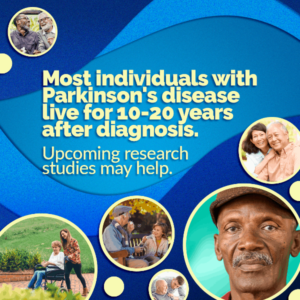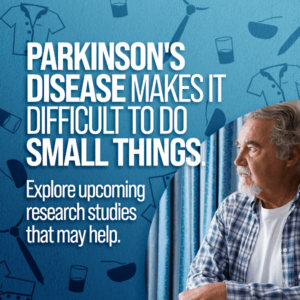When we think of Parkinson’s disease, the first thing that usually comes to mind is tremors, but it can be so much more than that. Research has shown that the majority of people diagnosed with Parkinson’s Disease will experience some degree of cognitive impairment and will continue to decline over time. In fact, about half of the people living with Parkinson’s Disease have dementia. As a caregiver it is important to be familiar with the different aspects of the disease and know how to respond accordingly. Here are some steps to help with caring for a loved one with Parkinson’s disease.
Educate yourself about the disease.
Parkinson’s is a neurodegenerative disorder. The disease affects the dopamine-producing neurons that are responsible for signaling the brain to move. Persons diagnosed either have low levels of dopamine-producing neurons or have an absence of them.

The disease progression of Parkinson’s differs for each person and develops slowly. There are five stages of the disease that range from zero (no symptoms) to 5, which is advanced PD. While the disease itself is not fatal, complications from the disease can be serious. Generally, common symptoms after onset can include:
- Tremor- Mainly at rest. Looks like “pill-rolling”. This mimics the movement of holding a pill between your thumb and forefinger and rolling it around continuously.
- Bradykinesia– Slowness of movement.
- Limb Rigidity-Stiffness in arms or legs.
- Gait/Balance Problems-Trouble walking or maintaining balance.
Don’t forget to ask questions at doctor’s appointments and don’t be afraid to bring up any concerns that you may have.
Help to keep your loved one active. Starting or continuing scheduling of regular exercise can make a big difference when it comes to their mobility. Walking, strength training, swimming, and cycling have all been proven to be good options for those with Parkinson’s.

Get informed about PD Research. While there is currently no cure for Parkinson’s disease, research studies may hold the key to potential new care options. If your loved one is living with Parkinson’s disease, upcoming studies at the Neuropsychiatric Research Center of Southwest Florida may be an option. Candidates who qualify and participate may receive study-related care at no cost and receive access to study medication. Compensation for time and travel may also be available. CLICK HERE to learn more.
References:
https://www.apdaparkinson.org/resources-support/living-with-parkinsons-disease/





